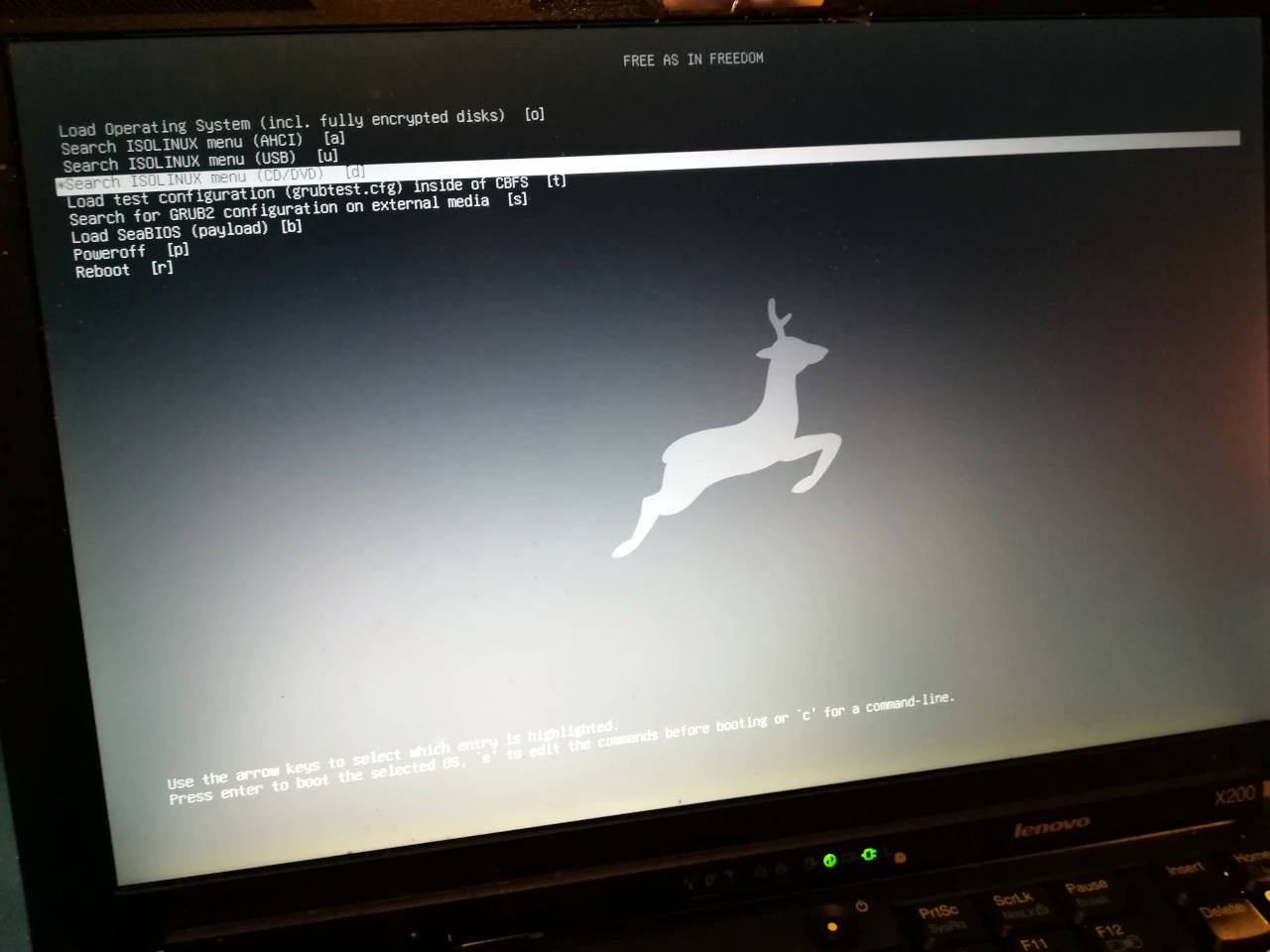- 26 Posts
- 24 Comments

 192·1 year ago
192·1 year agoThis is effectively saying, “This article is correct but for the wrong reasons”. People aren’t angry about why hundreds of migrants dying isn’t newsworthy. They’re angry that it’s not newsworthy.
I’m frankly surprised that not enough people find it disgusting that the EU passively killing hundreds of refugees is less interesting because the EU does so regularly.

 1·1 year ago
1·1 year agoOh sorry I meant I’ve seen reports that the voltage issue was due to a few faulty programmers, I’ve personally never used one.
Interestingly, this video also brings up amps as the root cause, not volts. I might get an Arduino in that case just for more control, but would you say it’s beginner-friendly? This would be my first time attempting libreboot (or any kind of chip programming for that matter)…

 1·1 year ago
1·1 year agoThanks a ton. I’ve been looking into this myself, and it seems like the issue was mostly due to a few faulty CH341a models, and it also seems that newer models allow a toggle between 3.3v and 5v. But reassuring that it’s worked well for you too.
I think I might get a cheap multimeter as they can come for less than $10, just to be safe. Could be a good long term investment!
Oh nice thanks!
I should emphasize that a lot of pro-Western outlets and commentators have recently weaponised the term to discredit any diverging points of view re-the Ukraine War. So someone like Cornel West would be a “tankie” by this point of view, which is actually kind of disgusting in how dishonest it is.
Thank you so much. Across the Fediverse!

 2·1 year ago
2·1 year agoCongratulations, looking wonderful!

 3·1 year ago
3·1 year agoSadly not!
If they’re actually going for accuracy, they should make the US the demonic antagonist, and Cuba, South Africa, Laos, Vietnam etc as the protagonists.

 0·1 year ago
0·1 year agoThanks – especially for the tip about them looking ‘leggy’! Thankfully I’ve got a good windowsill that gets a lot of sun, so I’m hoping they’ll thrive (over the summer, at least).
EDIT: And yep, strangely enough, there are only 3 comments here (6 now, including my replies to each of them), but the text below my post says there’s 20 comments in total…strange?

 2·1 year ago
2·1 year agoCheers! Fwiw, here’s a list of compatible desktops from the libreboot website:
- Gigabyte GA-G41M-ES2L motherboard
- Acer G43T-AM3
- Intel D510MO and D410PT motherboards
- Apple iMac 5,2
- HP Elite 8200 SFF (HP 6200 Pro Business probably works too)

 6·1 year ago
6·1 year agoDoes this require fiddling with software?
Depends. Libreboot replaces your processor’s firmware with fully libre software. Most importantly, it gets rid of Intel Management Engine, which is a firmware-level spyware that all modern laptops have. Almost all laptops are stuck with this firmware – the sole exception are ~10 machines, mostly Toshiba, from 2008-2012ish. With these, you can completely eliminate the Intel ME by flashing your firmware with libreboot.
Now, in most cases, this requires tinkering with hardware. If you’re lucky, you can find a ThinkPad model that you can flash without having to gut the whole machine first. So in most cases (to my understanding), librebooting a machine is heavy on having to disassemble your laptop.
Does it work out of the box?
If by ‘out of the box’ you mean ‘works without issue once installed’, then yes. Once you’ve done the fiddling and set everything up, you don’t even have to think of libreboot again.
Some motherboard bios will give overclocking(OC) options. Does Libreboot give OC options, RAID drivers, or boot security options (encrypted OS)?
This is mostly beyond my expertise, but I recommend going through libreboot’s extremely informative official website.
If i wanted to take my current Franken-desktop and switch out the BIOS/UEFI and keep the OS, could this do it gracefully?
Almost definitely no. Libreboot only works on a select few devices, all of which have been out of production for about a decade (usually more). It’s a great option if you’re 1) Willing to tinker, AND 2) Either have one of the compatible models lying around, OR 3) Are willing to find one off of eBay auctions or local marketplaces.
You can find the list of compatible laptops on the libreboot website – if you’re lucky, maybe you have/can find one of these. If not, I’m not fully sure this has been of much help to you :')
The main appeal of libreboot is that you can truly create a 100% libre laptop with it. No blobs, no proprietary software, no invasive surveillance even at the firmware level.
No problems! I feel like you could look into coreboot, but I really don’t know much about it. FWIW, I’m personally optimistic that RISC-V, being both open-source and a real competitor to the chip cartels, might lead us to a world where we can yet again have modern hardware that’s truly privacy-respecting.
Until then, it’s libreboot. Still, FWIW, I personally use a linux laptop with coreboot on it, running an 11th Gen Intel i7. Hoping to libreboot an old ThinkPad I got my hands on soon, just as an experiment. The goal is to fully move to that one as a daily driver – we’ll see.
My understanding is that you simply won’t be able to flash libreboot on a non-supported laptop. Bear in mind, ‘supported’ here actually means ‘a machine that happens not to have Intel Management Engine’.
To put it differently, Libreboot’s maintainer hasn’t consciously chosen supported hardware. It’s just that newer generations of Intel and AMD chips make it impossible to flash libreboot on them. For these machines, the closest you can get is flashing coreboot, which disables/ringfences the problematic, privacy-threatening firmware (Intel ME, in the case of Intel) but doesn’t eliminate it. Also, coreboot isn’t free software – libreboot was created as an alternative that’s truly free (as in freedom, not beer, as the saying goes).
This is also why libreboot-compatible laptops tend to be really old Thinkpads and Chromebooks from between 2008-2012ish. If you want a more modern laptop, then I’d suggest coreboot, with the main caveat that strictly speaking, coreboot doesn’t comprehensively eliminate the privacy problem the way libreboot does, and that it’s also not free software.

 0·1 year ago
0·1 year agoGreat. I don’t know enough to use either but I think I’m going to try lean on podman from the get go. In any case, I know that all podman commands are exactly identical to Docker, such that you can replace, say,
docker composewithpodman composeand move on with ease.

 1·1 year ago
1·1 year agoDo you think Podman is ready to take over Docker? My understanding is that Podman is Docker without the root requirement.

 1·1 year ago
1·1 year agoRelieved to hear. I was just ticked off by a good number of people online coming to the Prince’s defence.




















👀